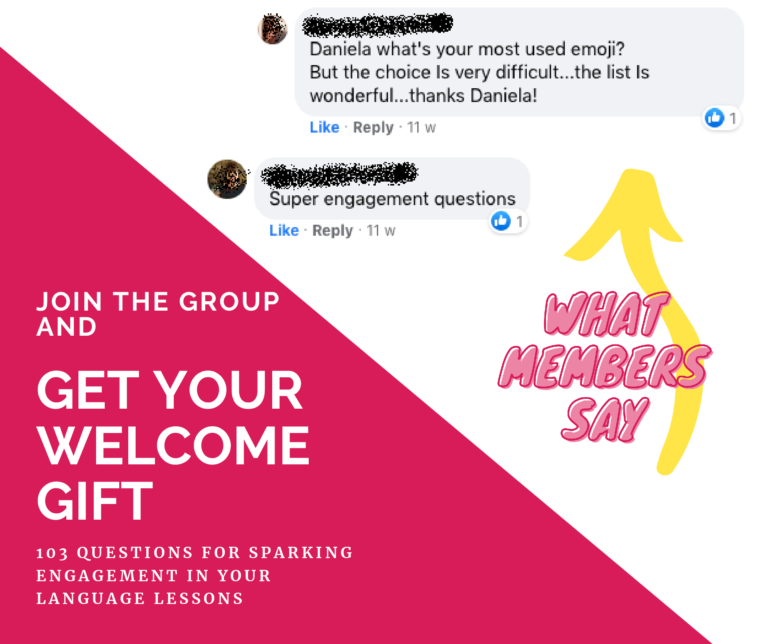
Why do we always start the lessons of our English speaking course with some good warming up? Is it just for fun or is it because it affects the efficacy of the lessons? Students, this post tells you how we boost your performance during the lessons. Teachers, this post tells you why it is important to plan warming up exercises in any English speaking course and what are the effects on the students.
Actors. Athletes. Managers. Teachers. Sellers. Students. Administration officers. All of them every day find a way to get focused and ready for their professional performance. As well as any professionals, the participants in a language course are suggested to get ready for the lesson, make the most out of it and achieve some results. The best way to help them to reach that goal is to plan warming up exercises at the beginning of each lesson. Why? How does it affect the lesson and the students’ performances?
Why to plan warming-up exercises in an English speaking course
Students in an English speaking course want to achieve one main result: to improve their speaking skills and gain in fluency. Now, we never know the state of mind the students get to the lesson in, therefor it is extremely important to dedicate some time at the beginning of the lessons to get them focused and relaxed in order to put them in a condition to give their best while they enjoy the lesson and have fun.
There are a number of reasons why we do warm-ups at the beginning of an English speaking course. The reasons listed below (in a shape of keywords) are the results of what I have been observing during the lessons in Learn English through Drama.
- WELCOME, THIS IS THE CREATION. A good warm-up helps people to create a totally new inner space that breaks up with all feelings and emotions people have plenty of when they step in the classroom. They let any kind of frustration, sense of urgency, sadness, hunger, even happiness and joy flow away in order to create an empty space and get ready for learning something new. In a few minutes, we let the bus we missed or the train packed with people or the rush for getting to the lesson on time simply flow away. All tensions get dissolved.
- HERE YOU ARE, SENSE. In letting that flow happen and in getting ready for welcoming what they will learn, students reconnect themselves to the sense, the deepest meaning of what they are doing. This happens even whether they are not that aware of it. When they have the feeling they reached a state of calm and quietness, then we can say they have reconnected with the sense of what they are doing. they know why they are there. In other words, they reconnect with their motivation.
- MY DEAR FRIEND, SIMPLICITY. Giving very simple and thorough instructions to the students solidifies their self-confidence because they understand what they are asked to do. While the teacher walks them through the exercise, they consolidate the awareness for which they receive an instruction and they are able to get it and act accordingly. In a very small scale, this is how we build up self-confidence.
- THE BOOST. Here comes the most well-known reason for doing warm-ups: to boost the energy. A good warming-up exercise should aim at increasing the group’s positive energy and motivation and bonding the group. If at the very beginning the students might have still doubts about their skills and capacity to achieve the lesson goals, this is the stage where they boost their self-confidence as they tap energy of the group.
Although it could seem to be a long process, I guarantee we can take the students from the creation step to the boost step literally in a few minutes. Also, the good news is that we don’t need to choose drama exercises for getting a good warm-up. In Learn English through Drama the students are proposed to do warm-ups taken from drama and improvisation rehearsal because this fits the nature of the course. In a grammar lesson it could be effective to propose a fun game (maybe to review what the students learned in the previous lessons) or to start with some basic conversation by asking the students ‘How are you today? What are you up to? How do you feel today?’. In suggestopedia students begin every lesson by singing a song altogether.
Curious about Learn English through Drama next dates and courses?
Find out more about that: Click here to see the next courses
You see, there are a number of ways to do the warming up. You’ll just need to choose yours. If you are interested in teaching English through drama, you will have the chance to find out exercises and activities for your students by following this blog.
Curious about teaching English through Drama?
Contact us to find out more about it.
Catch up soon!
Want more support?
Join the Facebook group Independent Language Teachers Collective to get daily advice, tons of free training and to branch out with other independent language teachers like you!
ALSO…
Available only for the Collective members: free list 103 question for sparking engagement in your language lessons.
This is what members say about the freebie:

Join in the Collective and grab your welcome gift:
Join Facebook Group

